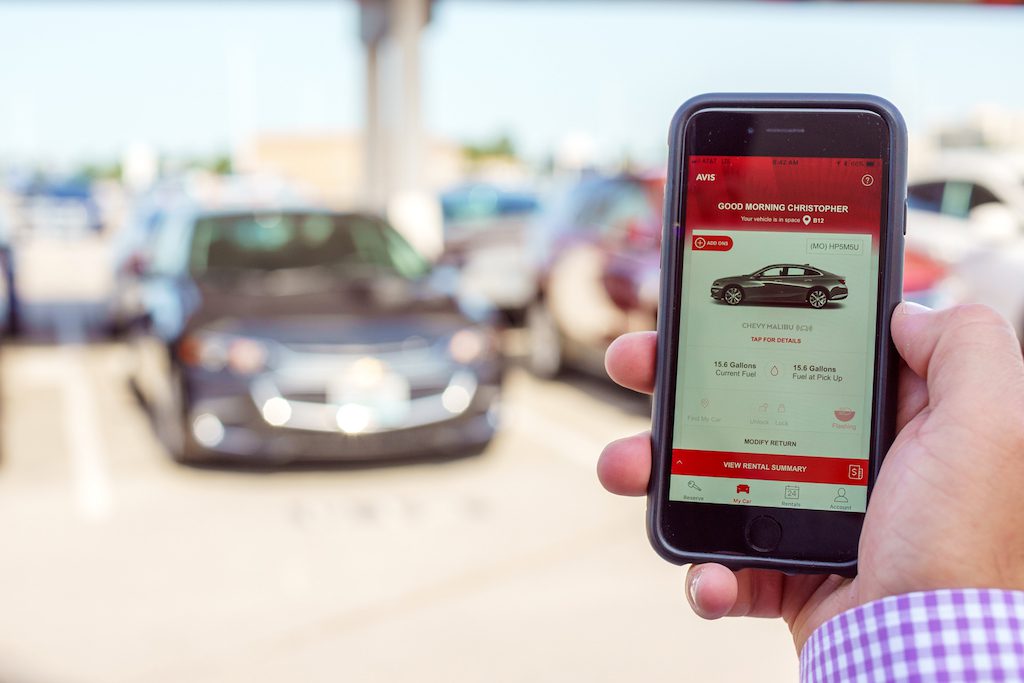Skift Take
As car rental providers get ready to take on the next decade, a stronger investment in digital technology seems to finally be paying off.
 Corporate travel has not done a good job at solving the problems faced by actual business travelers. Smaller corporate travel companies, along with travel providers and technology startups, are working hard to find solutions to the most enduring problems across the sector.
Corporate travel has not done a good job at solving the problems faced by actual business travelers. Smaller corporate travel companies, along with travel providers and technology startups, are working hard to find solutions to the most enduring problems across the sector.
In this interview series, we will break down the silos between travel sectors to find out from leading travel executives how they are working to make the business travel experience more enjoyable for travelers and simpler for the companies sending employees on the road.
Usually, renting a car when on a business trip brings annoying headaches with it. Waiting in a long line after sitting for hours on a plane, for instance, or getting a car you didn’t actually reserve.
But Jeff Kaelin, Avis Budget Group’s vice president of product development, said a maintained focus on mobile experience and more robust digital customization is creating a better experience for business travelers. A future with increased choice is almost here, particularly as car rental companies get smarter about empowered travelers once they’re in destination.
Skift spoke to Kaelin about the future of rental cars, building a better experience for business travelers, and the inevitable endgame of personalization in ground transportation.
This interview has been edited for length and clarity.
Skift: Car rental has been averse to change as a sector, but the last few years have seen a bigger focus on technology. How has Avis worked to make the car rental experience better for business travelers?
Jeff Kaelin: The thing about car rental experience is that customers aren’t shy about telling you what they don’t like about the experience. For us, the real difference was that we put that feedback at the center of our strategy. Four years ago, we went out and we sat down with customers to find out what they wanted from their car rental experience. We spent a lot of time traveling across the country listening to all of the things that might pain you to hear but really took that as fuel for co-creation of our mobile app.
If you’ve been following our mobile app, we’ve made a tremendous investment over the last four years. We set out on a journey to reinvent rental. What that really meant, right, was putting customers at the center of the design and working to eliminate the pain points that they felt throughout that experience.
Skift: So what did the car rental public have to say during this listening tour?
Kaelin: They really wanted to have control over their rental experience. They wanted to be able to reduce stress. And they wanted increased confidence and transparency around the products and services that they were getting from us…
When you land at an airport, you’re typically pressed for time. One of the things that caused them a lot of undue stress was knowing whether or not their car was going to be there. And if there was going to be some sort of an obstacle that they had to overcome, what was it, and how they get that resolved.
One of the things we did with the mobile app is integrate notifications for our customers so that when a traveler arrives at an airport, they receive a notification of the vehicle that was assigned to them, what it looked like, where it was located, to give them peace of mind that a vehicle had been assigned to them. But we also, then, gave them the ability, once they opened that notification, to make some decisions about their rental.
They could confirm the car and they could say that the car that you’ve assigned to me is just fine. They could change their vehicle. We provided them with [options], three unique make and models that they can exchange into for free or we’ll offer them the opportunity for an upgrade if they’re interested. And last, the ability to cancel their rental. We empowered them the ability to do that all from the mobile device and not have to contact our facility.
Skift: You built an app that relieved many of the pain points that travelers have to deal with when picking up a car. How does progress towards offering a connected fleet of cars also affect the customer experience?
Kaelin: Publicly you’ve heard us announce that we’re marching towards a fully connected fleet by 2020. What that does for us is give us some capabilities that help us to reinvent the rental experience, improve our operation in the back-end, and, then, enable new [business] models.
Some of the biggest changes for us [are around] using connected car technology to [begin] to extend our existing products and services to where travelers need them most. In today’s world, you visit a car rental facility at the airport or a local market facility. In the future, we see new models where we will be using connected car technology to grant remote access to vehicles and allowing consumers to use our products and services where they need them most. And so you can imagine models where we would partner potentially with hotel partners, etc, to extend our footprint and make it more convenient for travelers to get access to our product and services.
Skift: Every business traveler knows the annoyance of needing a car for only a few days of a trip. Do you pick up the car right away at the airport, when you don’t really need it, or eventually head back to the airport and eat the cost of a taxi or rideshare?
Kaelin: One of the things we’ve been limited to, that has made that overly complex, historically, has been key management. Making sure we can put a key in your hand and we get a key back from you. We just recently signed an exclusive deal with Continental Automotive to provide us with keyless technology that’s integrated into a telemetry solution. That’s a fancy way of saying that we’re going to allow customers to gain access to their vehicles from their mobile device and actually control and enable the ability to start the vehicle, as well.
We needed someone behind a counter to have you sign a rental agreement to give you a key. Now with our mobile app you have the ability to do that all directly. And when we pair that with the new connected car technology, we can remotely grant you access, including the ability to start the vehicle.
Skift: How do you look at the variety of brands Avis Budget Group offers. Something like Zipcar, for instance, doesn’t fit into the traditional car rental paradigm. Do you think a platform offering different ways to get around is in the future for Avis?
Kaelin: The brands today have a certain following and customers have affinities to brands. When I think about mobility, you certainly want customers to think about your brand when they need to get from point A to point B. And you need to be able to provide them with options and alternatives that meet their needs. We see ourselves really well positioned for that as we go forward. And certainly, see that as some of the opportunities we’ll be looking at.
Skift: I’m looking forward to those Avis scooters on your platform soon!
Kaelin: (Laughs) Yeah. There’s a lot of scooters out there. But when I think about the future of mobility for us, we see a world that’s connected, integrated, on demand. That’s going to be powered by our connected cars at the core. But thinking about how we extend those capabilities out to the marketplace. And when I think of our strengths, we have an incredibly strong brand, a trusted brand, and a strong commercial network. I think we’ve put our customers at the center of the design for the mobile app, but we also worked with the travel managers.
The travel managers are a secondary customer to that experience. They want to ensure that their travelers have a great end-to-end experience. They also want to make sure that their travel policies are adhered to and managed through whatever means that you give their travelers the ability to transact.
We worked really closely with not just the traveler but travel managers to make sure that we’re meeting their needs, as well. Interestingly, certificate of insurance was one of the biggest things requested by travel managers, making that readily available to their travelers, and easy to access. That was one of the things that, based on their feedback alone, we put right into the mobile app. It’s certainly one of our most popular features today.
Skift: You talked about the connected fleet plans for 2020. Where else do you see innovation coming for business travelers in ground transportation?
Kaelin: We’re doing some really interesting things in Kansas City where we have our mobility lab. Travelers coming into Kansas City are getting localized content in and around Kansas City. So as they go around potential sites of interest, they get a notification that tells them that they’re within X distance to an event, and letting them know what that event is or what that site to see is. And trying to better equip travelers to make their journey a little more pleasurable.
What’s that one thing when I’m in Kansas City that I can do to make a memory or to make the best out of my business trip? And that may be understanding which barbecue place is the best-rated place in town. It might be about going to see a baseball museum. It might be about understanding a local art festival. What we hear from customers is that they want to understand what’s going on in and around the areas that they’re in. And they’re looking for us to provide them with ways to make the experience better.
Certainly, we would all love the seat to remember our seat position, and the radio stations to be remembered and our favorite radio station. Those connected cars enable next-generation capabilities or experiences. We’re gonna be looking at pushing hard to enable those into our customer experience.
Everybody wants something that’s personalized, that’s a relevant either offer or information for them. As we continue to go forward, we’re going to look to make that experience much better, much more seamless, and much more frictionless.
The Daily Newsletter
Our daily coverage of the global travel industry. Written by editors and analysts from across Skift’s brands.
Have a confidential tip for Skift? Get in touch
Tags: avis, ctir, future of business travel
Photo credit: A promotional image of the Avis app from Avis Budget Group. Avis Budget Group / Facebook
